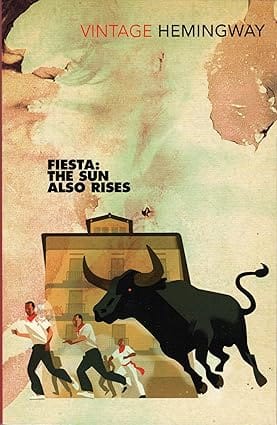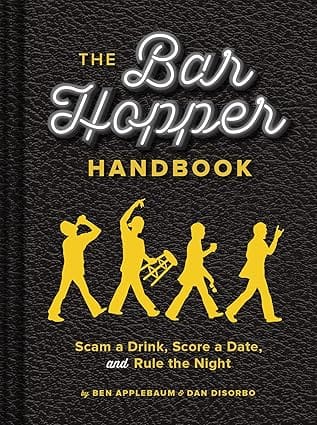WELCOME TO MIDLAND BOOK SHOP!
SHOP FOR
- Contemporary Fiction
- Contemporary Fiction
- Children
- Children
- Comics & Graphic Novels
- Comics & Graphic Novels
- Non-Fiction
- Non-Fiction
- Fiction
- Fiction
Shop No.20, Aurobindo Palace Market, Hauz Khas, Near Church +91 9818282497 | 011 26867121 110016 New Delhi IN
Midland The Book Shop ™
Shop No.20, Aurobindo Palace Market, Hauz Khas, Near Church +91 9818282497 | 011 26867121 New Delhi, IN
+919871604786 https://www.midlandbookshop.com/s/607fe93d7eafcac1f2c73ea4/677cda367903fd013d69b606/without-tag-line-480x480.png" [email protected]9781784787752 664752032ea8a952d447c93a Darkwater Voices From Within The Veil https://www.midlandbookshop.com/s/607fe93d7eafcac1f2c73ea4/664752042ea8a952d447c948/51r4ofm8-zl-_sy425_.jpg 9781784787752
Review
“Du Bois essentially defined black America in the 20th century with his notion of ‘double consciousness’—the idea that African Americans experience everything in this world both as Americans and as black people. Scholars have come up shaky in their efforts to update Du Bois’s simple, but ingenious formula.”
—Ta-Nehisi Coates
“[Du Bois was] the greatest of the early civil-rights leaders, a figure of towering significance in American politics and letters … Remembered for his single-minded commitment to racial justice and his capacity to shape black consciousness, Du Bois used language and ideas to hammer out a strategy for political equality and to sound the depths of the black experience in the aftermath of slavery.”
—Stuart Hall
“The greatest of the early civil-rights leaders, a figure of towering significance in American politics and letters.”
—Guardian
“Du Bois’ philosophy is significant today because it addresses what many would argue is the real world problem of white domination.So long as racist white privilege exists, and suppresses the dreams and the freedoms of human beings, so long will Du Bois be relevant as a thinker, for he, more than almost any other, employed thought in the service of exposing this privilege, and worked to eliminate it in the service of a greater humanity.”
—Donald J. Morse
“We need to view [Du Bois] not simply as the individual genius that he undoubtedly was. We need to view him and his life of struggle and achievement—and betrayal by his native land—as a metaphor for the essential meaning of black life in America. Advocate, statesman, negotiator, defender,champion, ambassador, griot, and peerless challenger of the system, Du Bois was all these things and more of—and for—our national self … He was the best prime minister we ever had for our State That Never Was.”
—Bill Strickland
“In 1920 W.E.B. Du Bois’s Darkwater: Voices from Within the Veil issued a call for an anti-colonial, internationalist approach to historical and social science scholarship. At a time when anthropology’s institutional stance as the science of localized and isolated’primitive’ cultures was still being forged, Darkwater offered an alternate mapping of the discipline, one centered on an understanding of capitalism as a racialized, interconnected global system that continually produced inequality and difference.”
—Dialectical Anthropology
“The lasting power of Darkwater’s democratic vision … consists not only in what Du Bois is able to see; it also encompasses what he enables readers to see anew – and, possibly, both differently and further than Du Bois himself. Without presuming that it is necessarily or always the case that the view from Du Bois’s ‘veiled corner’ will prove more illuminating than the view from another vantage, Darkwater shifts the burden of proof. It forces us to pause and consider the counter-examples that are disregarded or neutralized whenever we talk about democratic, or relatively democratic, societies as though a shared commitment to racial equality were an established fact.”
—Lawrie Balfour, Political Theory
“In Darkwater DuBois writes what appears as a guide for ‘colored men and women’ on childrearing. But, as it concerns the residents of the future, it is, in fact, a revolutionary political agenda.”
—The New Centennial Review
—Ta-Nehisi Coates
“[Du Bois was] the greatest of the early civil-rights leaders, a figure of towering significance in American politics and letters … Remembered for his single-minded commitment to racial justice and his capacity to shape black consciousness, Du Bois used language and ideas to hammer out a strategy for political equality and to sound the depths of the black experience in the aftermath of slavery.”
—Stuart Hall
“The greatest of the early civil-rights leaders, a figure of towering significance in American politics and letters.”
—Guardian
“Du Bois’ philosophy is significant today because it addresses what many would argue is the real world problem of white domination.So long as racist white privilege exists, and suppresses the dreams and the freedoms of human beings, so long will Du Bois be relevant as a thinker, for he, more than almost any other, employed thought in the service of exposing this privilege, and worked to eliminate it in the service of a greater humanity.”
—Donald J. Morse
“We need to view [Du Bois] not simply as the individual genius that he undoubtedly was. We need to view him and his life of struggle and achievement—and betrayal by his native land—as a metaphor for the essential meaning of black life in America. Advocate, statesman, negotiator, defender,champion, ambassador, griot, and peerless challenger of the system, Du Bois was all these things and more of—and for—our national self … He was the best prime minister we ever had for our State That Never Was.”
—Bill Strickland
“In 1920 W.E.B. Du Bois’s Darkwater: Voices from Within the Veil issued a call for an anti-colonial, internationalist approach to historical and social science scholarship. At a time when anthropology’s institutional stance as the science of localized and isolated’primitive’ cultures was still being forged, Darkwater offered an alternate mapping of the discipline, one centered on an understanding of capitalism as a racialized, interconnected global system that continually produced inequality and difference.”
—Dialectical Anthropology
“The lasting power of Darkwater’s democratic vision … consists not only in what Du Bois is able to see; it also encompasses what he enables readers to see anew – and, possibly, both differently and further than Du Bois himself. Without presuming that it is necessarily or always the case that the view from Du Bois’s ‘veiled corner’ will prove more illuminating than the view from another vantage, Darkwater shifts the burden of proof. It forces us to pause and consider the counter-examples that are disregarded or neutralized whenever we talk about democratic, or relatively democratic, societies as though a shared commitment to racial equality were an established fact.”
—Lawrie Balfour, Political Theory
“In Darkwater DuBois writes what appears as a guide for ‘colored men and women’ on childrearing. But, as it concerns the residents of the future, it is, in fact, a revolutionary political agenda.”
—The New Centennial Review
About the Author
W.E.B. Du Bois was an American sociologist, historian, civil rights activist, Pan-Africanist, author, and editor. He was one of the co-founders of the National Association for the Advancement of Colored People (NAACP) in 1909. He is the author of numerous books, including the seminal The Souls of Black Folk and his 1935 magnum opus Black Reconstruction in America.
in stockINR 999
1 1
Email ID already exists!
Your Current password is incorrect
Password Updated Successfully
Thanks for your Feedback
- Home
- Midland Exclusive
- Darkwater Voices From Within The Veil
Darkwater Voices From Within The Veil
ISBN: 9781784787752
₹999
SIZE GUIDE
Sold By: Hauz Khas - Aurobindo Market
Details
- ISBN: 9781784787752
- Author: W E B Du Bois
- Publisher: Verso Books
- Pages: 176
- Format: Paperback
Book Description
Review
“Du Bois essentially defined black America in the 20th century with his notion of ‘double consciousness’—the idea that African Americans experience everything in this world both as Americans and as black people. Scholars have come up shaky in their efforts to update Du Bois’s simple, but ingenious formula.”
—Ta-Nehisi Coates
“[Du Bois was] the greatest of the early civil-rights leaders, a figure of towering significance in American politics and letters … Remembered for his single-minded commitment to racial justice and his capacity to shape black consciousness, Du Bois used language and ideas to hammer out a strategy for political equality and to sound the depths of the black experience in the aftermath of slavery.”
—Stuart Hall
“The greatest of the early civil-rights leaders, a figure of towering significance in American politics and letters.”
—Guardian
“Du Bois’ philosophy is significant today because it addresses what many would argue is the real world problem of white domination.So long as racist white privilege exists, and suppresses the dreams and the freedoms of human beings, so long will Du Bois be relevant as a thinker, for he, more than almost any other, employed thought in the service of exposing this privilege, and worked to eliminate it in the service of a greater humanity.”
—Donald J. Morse
“We need to view [Du Bois] not simply as the individual genius that he undoubtedly was. We need to view him and his life of struggle and achievement—and betrayal by his native land—as a metaphor for the essential meaning of black life in America. Advocate, statesman, negotiator, defender,champion, ambassador, griot, and peerless challenger of the system, Du Bois was all these things and more of—and for—our national self … He was the best prime minister we ever had for our State That Never Was.”
—Bill Strickland
“In 1920 W.E.B. Du Bois’s Darkwater: Voices from Within the Veil issued a call for an anti-colonial, internationalist approach to historical and social science scholarship. At a time when anthropology’s institutional stance as the science of localized and isolated’primitive’ cultures was still being forged, Darkwater offered an alternate mapping of the discipline, one centered on an understanding of capitalism as a racialized, interconnected global system that continually produced inequality and difference.”
—Dialectical Anthropology
“The lasting power of Darkwater’s democratic vision … consists not only in what Du Bois is able to see; it also encompasses what he enables readers to see anew – and, possibly, both differently and further than Du Bois himself. Without presuming that it is necessarily or always the case that the view from Du Bois’s ‘veiled corner’ will prove more illuminating than the view from another vantage, Darkwater shifts the burden of proof. It forces us to pause and consider the counter-examples that are disregarded or neutralized whenever we talk about democratic, or relatively democratic, societies as though a shared commitment to racial equality were an established fact.”
—Lawrie Balfour, Political Theory
“In Darkwater DuBois writes what appears as a guide for ‘colored men and women’ on childrearing. But, as it concerns the residents of the future, it is, in fact, a revolutionary political agenda.”
—The New Centennial Review
—Ta-Nehisi Coates
“[Du Bois was] the greatest of the early civil-rights leaders, a figure of towering significance in American politics and letters … Remembered for his single-minded commitment to racial justice and his capacity to shape black consciousness, Du Bois used language and ideas to hammer out a strategy for political equality and to sound the depths of the black experience in the aftermath of slavery.”
—Stuart Hall
“The greatest of the early civil-rights leaders, a figure of towering significance in American politics and letters.”
—Guardian
“Du Bois’ philosophy is significant today because it addresses what many would argue is the real world problem of white domination.So long as racist white privilege exists, and suppresses the dreams and the freedoms of human beings, so long will Du Bois be relevant as a thinker, for he, more than almost any other, employed thought in the service of exposing this privilege, and worked to eliminate it in the service of a greater humanity.”
—Donald J. Morse
“We need to view [Du Bois] not simply as the individual genius that he undoubtedly was. We need to view him and his life of struggle and achievement—and betrayal by his native land—as a metaphor for the essential meaning of black life in America. Advocate, statesman, negotiator, defender,champion, ambassador, griot, and peerless challenger of the system, Du Bois was all these things and more of—and for—our national self … He was the best prime minister we ever had for our State That Never Was.”
—Bill Strickland
“In 1920 W.E.B. Du Bois’s Darkwater: Voices from Within the Veil issued a call for an anti-colonial, internationalist approach to historical and social science scholarship. At a time when anthropology’s institutional stance as the science of localized and isolated’primitive’ cultures was still being forged, Darkwater offered an alternate mapping of the discipline, one centered on an understanding of capitalism as a racialized, interconnected global system that continually produced inequality and difference.”
—Dialectical Anthropology
“The lasting power of Darkwater’s democratic vision … consists not only in what Du Bois is able to see; it also encompasses what he enables readers to see anew – and, possibly, both differently and further than Du Bois himself. Without presuming that it is necessarily or always the case that the view from Du Bois’s ‘veiled corner’ will prove more illuminating than the view from another vantage, Darkwater shifts the burden of proof. It forces us to pause and consider the counter-examples that are disregarded or neutralized whenever we talk about democratic, or relatively democratic, societies as though a shared commitment to racial equality were an established fact.”
—Lawrie Balfour, Political Theory
“In Darkwater DuBois writes what appears as a guide for ‘colored men and women’ on childrearing. But, as it concerns the residents of the future, it is, in fact, a revolutionary political agenda.”
—The New Centennial Review
About the Author
W.E.B. Du Bois was an American sociologist, historian, civil rights activist, Pan-Africanist, author, and editor. He was one of the co-founders of the National Association for the Advancement of Colored People (NAACP) in 1909. He is the author of numerous books, including the seminal The Souls of Black Folk and his 1935 magnum opus Black Reconstruction in America.
User reviews
NEWSLETTER
Subscribe to get Email Updates!
Thanks for subscribing.
Your response has been recorded.

India's Iconic & Independent Book Store offering a vast selection of books across a variety of genres Since 1978.
"We Believe In The Power of Books" Our mission is to make books accessible to everyone, and to cultivate a culture of reading and learning. We strive to provide a wide range of books, from classic literature, sci-fi and fantasy, to graphic novels, biographies and self-help books, so that everyone can find something to read.
Whether you’re looking for your next great read, a gift for someone special, or just browsing, Midland is here to make your book-buying experience easy and enjoyable.
We are shipping pan India and across the world.
For Bulk Order / Corporate Gifting
 +91 9818282497 |
+91 9818282497 |  [email protected]
[email protected]
Click To Know More
INFORMATION
QUICK LINKS
ADDRESS
Midland Book Shop - Hauz Khas
Shop No.20, Aurobindo Palace Market, Near Church, New Delhi
Shop No.20, Aurobindo Palace Market, Near Church, New Delhi














